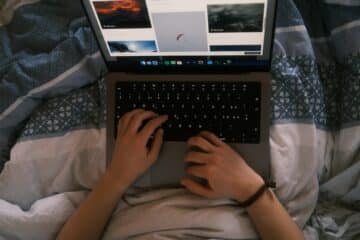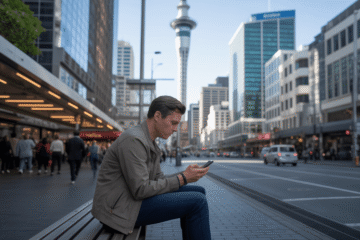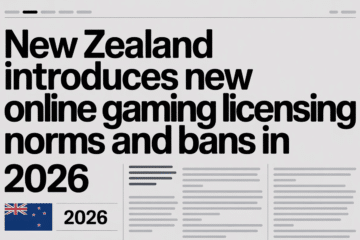How Aucklanders Unwind in a Hyperconnected City

Last Updated on July 15, 2025
In a place where productivity never sleeps and devices never disconnect, finding small moments of digital downtime has become essential. Between long commutes, busy workdays, and dense schedules, many residents are turning more than ever to short-form, accessible entertainment to recharge. Whether it’s streaming an episode over lunch, playing mobile games between meetings, or catching up on podcasts during the commute, the ways we unwind are evolving with the digital age.
From Commute to Couch: Entertainment on the Move
The city’s notoriously stretched transport infrastructure has made commutes fertile ground for entertainment-on-the-go. Mobile data plans, faster broadband, and a growing range of apps have made it easier than ever for people to use their transit time to escape the daily grind.
Podcasts, in particular, have surged in popularity. Short, digestible, and varied, they offer an easy way to learn, laugh, or decompress while on the move. Streaming platforms have also adapted, with autoplay features and offline downloads now standard, making content available in moments that used to be idle.
And it’s not just the commute, lunchtime breaks and quiet evenings at home are now commonly filled with bite-sized digital experiences that offer a break from work or the pressures of the day.
The Rise of Casual Gaming and Interactive Oases
Not everyone wants to watch or listen. Increasingly, casual gaming offers a few minutes of entertainment without a major time commitment. Mobile games, browser-based puzzles, and light interactive experiences have gained traction.
Platforms offering on-demand interactivity are part of this trend. One example is Flamez Casino NZ, a site that caters to users looking for modern, mobile-optimised entertainment with games available at any time of day. For many, these types of platforms offer a blend of light engagement and escape, without the commitment of longer-form media.
Why Short Bursts of Leisure Work
According to behavioural experts, brief periods of low-effort leisure can help sustain focus and lower stress during the day. It’s not about unplugging entirely, but rather choosing the right kinds of content, flexible, optional, and emotionally rewarding.
The region’s working culture, especially in industries tied to tech, finance, and education, means many professionals spend their days on screens. So the idea of “winding down” doesn’t always mean leaving the screen behind, it often means switching context to something non-demanding, humorous, or immersive in a different way.
Even five or ten minutes of mentally passive, emotionally positive content can have restorative benefits, supported by recent studies showing that Kiwis now spend the equivalent of 37 full days a year on social media alone.
The Digital Lounge Room is Expanding
At home, entertainment has become more personalised than ever. Smart TVs, Bluetooth speakers, and shared devices have helped households customise their downtime, sometimes collectively, but often individually. While families still gather to watch films, it’s just as common to see everyone on separate devices, curating their own version of relaxation.
As the city densifies, with more people living in apartments and smaller spaces, digital leisure often replaces traditional forms of recreation. A quick game, a streamed show, or a scroll through content is easier than heading out, especially during busy workweeks or wet winter months.
Councils and city planners are increasingly recognising the role of shared digital spaces in the community. Public institutions, including city libraries, now serve not only as cultural anchors but as essential hubs for digital access and media literacy, supporting a more inclusive transition to digitally driven leisure and communication.
Leisure Without Leaving the Grid
What this shift reveals is that “downtime” no longer means disconnecting entirely. Instead, individuals are becoming more strategic in how they use screen time for rest. The key lies in control and convenience, being able to dip into entertainment when it suits, without pressure, expectation or noise.
This transformation also reflects generational preferences. Millennials and Gen Z in particular have grown up with mobile entertainment as a norm. Their definitions of rest, leisure, and even socialising are deeply tied to screens, though in ways that prioritise control and curation, not just consumption.
Looking Ahead: Calm in the Cloud
As the city continues to grow as a digital hub, the role of micro-entertainment will only deepen. Faster networks, smarter apps and hyper-personalised content will further embed leisure into our pockets and routines. But as always, balance is key.
The future of rest in urban life may not mean powering down, it may simply mean choosing the right digital space to catch your breath. And in that space, New Zealanders are already redefining what it means to relax.


